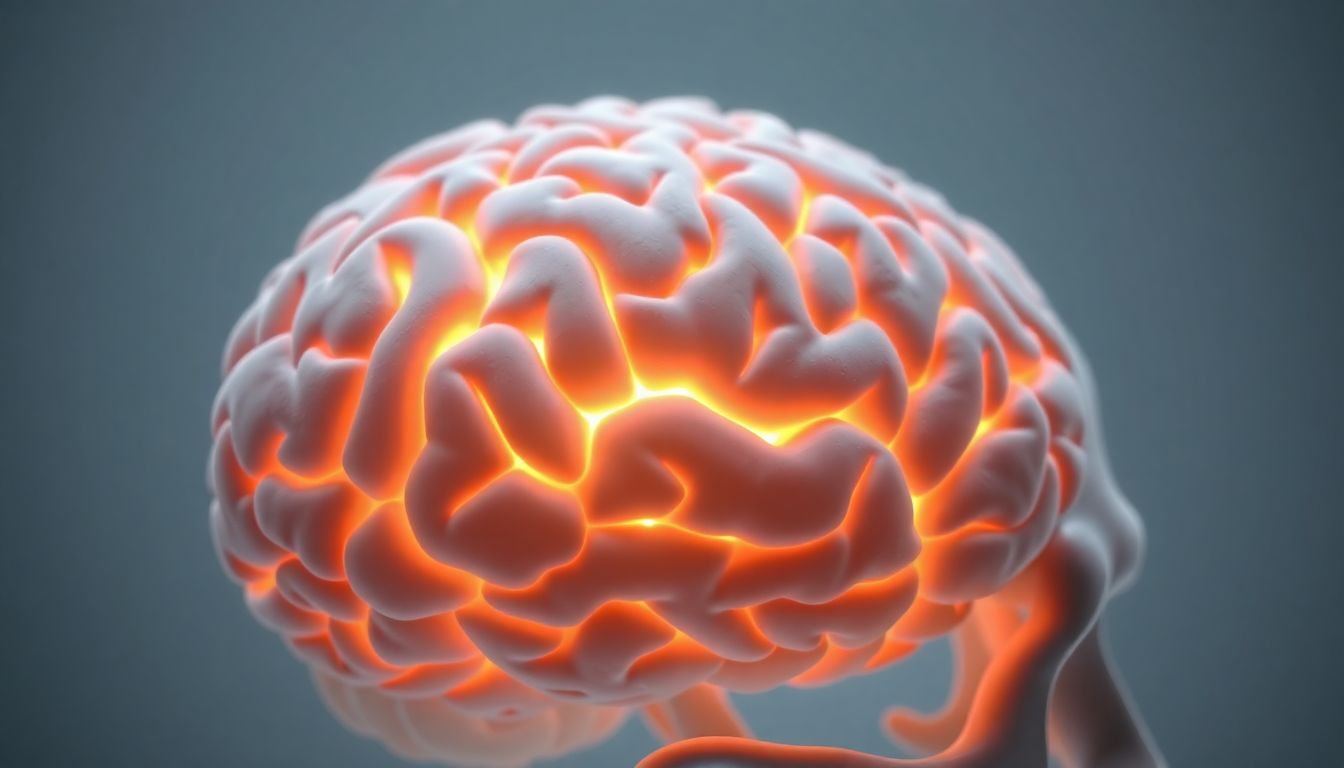Brain Care: Unlock Your Cognitive Potential and Live a Sharper Life

Brain Care: Unlock Your Cognitive Potential and Live a Sharper Life
Ever walk into a room and forget why? Or maybe you struggle to focus on tasks at hand? These moments can be frustrating. They might even feel like your brain isn't working as it should. Good news: brain care is the answer! It is a proactive approach. You can boost your cognitive well-being.
Brain care is all about nourishing your mind. It's about protecting it from decline. Think of it as exercise, but for your brain. When you prioritize brain health, many benefits can come. This includes a better memory. It can lead to improved focus, a more positive mood, and overall cognitive function. Let's dive into ways to unlock your brain's full potential!
The Foundation of Brain Care: Nutrition for a Sharper Mind
What you eat affects your body, right? Well, it greatly affects your brain as well. Specific nutrients can make a huge difference in cognitive function. Eating the right foods is a simple path to a sharper mind.
Fueling Your Brain: Essential Nutrients for Cognitive Function
Omega-3 fatty acids are great for brain health. They are found in fish like salmon and tuna. These acids support brain cell structure. B vitamins, found in leafy greens, help with energy production. Antioxidants, common in berries, protect against damage. Choline, found in eggs, helps with memory. Eating these nutrients will help. They support your cognitive function.
The Power of Plant-Based Foods: Antioxidants and Brain Protection
Fruits, vegetables, and whole grains are brain boosters. They're full of antioxidants. These fight oxidative stress. This reduces brain inflammation. A colorful diet is a happy diet. It's also a smart way to protect your brain.
Hydration's Role: Keeping Your Brain Cells Healthy
Did you know your brain is about 75% water? Staying hydrated is key for brain function. Even mild dehydration impairs cognitive performance. Studies show that even a 2% drop in hydration can impact memory. It can impact attention. Keep a water bottle nearby. Make sure you drink throughout the day.
Exercise Your Mind: Cognitive Stimulation and Mental Agility
Brains need exercise, just like muscles. Challenging your mind promotes neuroplasticity. This is the brain's ability to adapt and grow. Engaging in mentally stimulating activities is important. This is key for keeping your mind sharp.
The Power of Puzzles: Sharpening Your Mind with Mental Games
Puzzles are fun and beneficial. Sudoku, crosswords, and brain-training apps can improve memory. They can also improve attention. Problem-solving skills can improve too. Puzzles keep your mind active. They help strengthen neural connections.
Lifelong Learning: Expanding Your Knowledge and Cognitive Reserve
Never stop learning! Reading, taking courses, and trying new things builds cognitive reserve. This reserve helps protect against cognitive decline. Learning keeps your brain engaged. It gives you tools to handle challenges.
Creative Outlets: Unleashing Your Imagination for Brain Health
Creative activities are fantastic for your brain. Painting, writing, playing music, and dancing stimulate different brain areas. These activities promote cognitive flexibility. Creative expression can improve your mood. It can also boost your brainpower.
The Importance of Quality Sleep for Brain Health and Function
Sleep is vital for brain health. It's when your brain sorts information. It also clears out toxins. Getting enough sleep is not a luxury. It's a need for cognitive function.
Sleep's Impact on Memory and Learning: Consolidating Information
Sleep plays a key role in memory. This also includes learning. During sleep, your brain consolidates memories. It transfers information from short-term to long-term storage. Quality sleep helps you learn faster and remember more.
Establishing a Sleep Routine: Optimizing Your Sleep-Wake Cycle
A consistent sleep schedule improves sleep quality. Try to go to bed and wake up at the same time daily. Create a relaxing bedtime routine. This could include reading or taking a warm bath. Make sure your sleep environment is dark, quiet, and cool.
The Dangers of Sleep Deprivation: Cognitive Decline and Reduced Performance
Chronic sleep deprivation impacts cognitive function. It impairs attention, memory, and decision-making. Lack of sleep increases risk of cognitive decline. Aim for 7-9 hours of sleep each night. It will protect your brain.
Stress Management: Protecting Your Brain from the Detrimental Effects of Stress
Stress is part of life. But, chronic stress hurts your brain. It can cause inflammation. It can also lead to cognitive decline. Managing stress is crucial for protecting your mind.
The Impact of Chronic Stress on the Brain: Inflammation and Cognitive Decline
Long-term stress can cause many problems. It leads to inflammation. It also causes hormonal imbalances. These changes can impair cognitive function. This increases the risk of cognitive decline. Reducing stress is important for brain health.
Mindfulness and Meditation: Calming Your Mind and Reducing Stress
Mindfulness and meditation reduce stress. They improve focus. They also promote emotional well-being. Even a few minutes of daily meditation can make a difference. It can calm your mind. It can also protect your brain.
Relaxation Techniques: Finding Your Inner Peace and Reducing Anxiety
Relaxation techniques can reduce stress. Try deep breathing exercises. Progressive muscle relaxation can help too. Yoga is an option as well. These practices promote relaxation. They can improve your mood.
Conclusion
Brain care is essential for long-term cognitive health. It helps improve your memory. It also improves your focus. You can also improve your mood. Incorporate brain-healthy habits into your daily life. Nourish your brain with good foods. Exercise your mind. Prioritize quality sleep. Manage your stress. These efforts will help you unlock your cognitive potential. You'll also live a sharper life. So, start taking care of your brain today!
dr iqbal{md}


Comments
Post a Comment